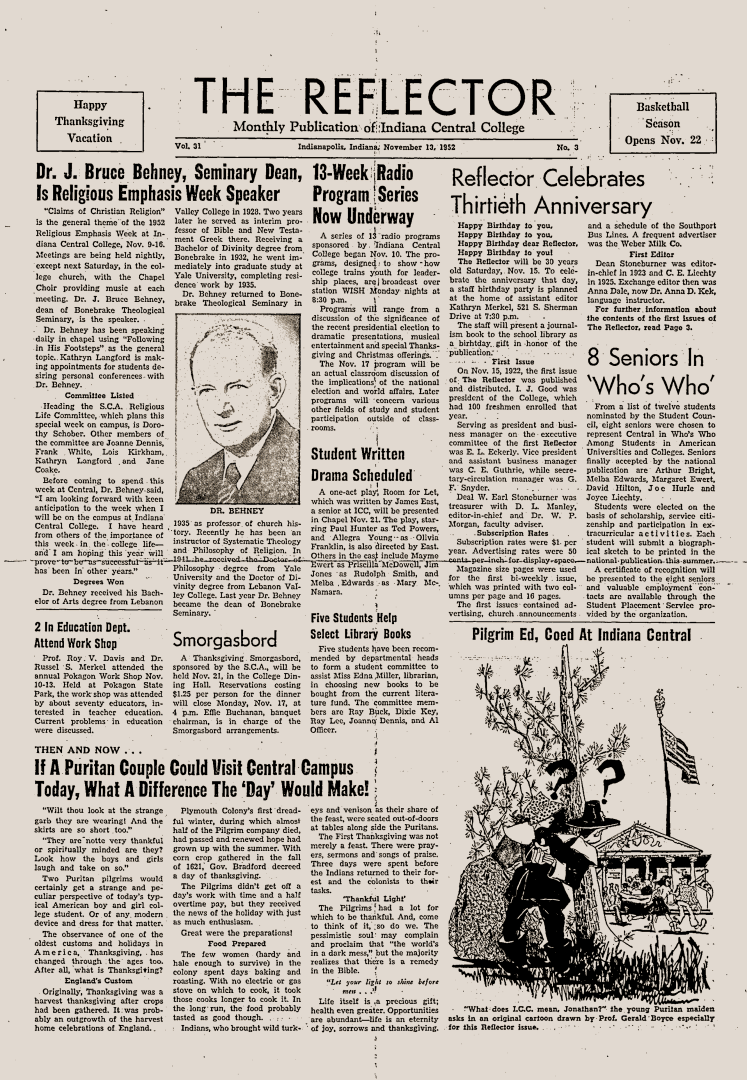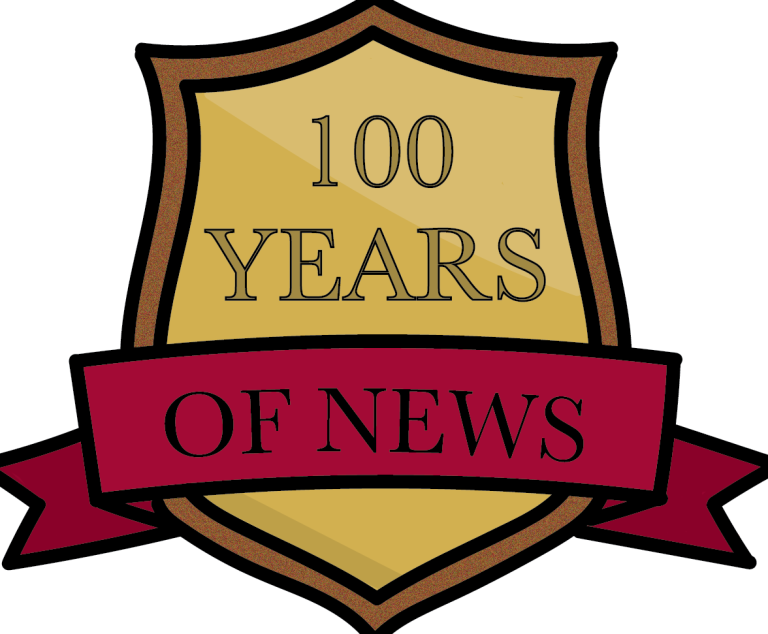It has been 70 years since our friends, the Puritan couple, last checked in on Indiana Central College’s, now the University of Indianapolis, campus. Things certainly have changed from the 1600s, to 1952 to 2022, to say the least.
“Wilt thou look at the strange garb they are wearing! And the skirts are so short too,” one of the Puritans said in the 1952 Thanksgiving issue of The Reflector.
I have bad news for them: in-style and societally accepted clothing has only gotten more revealing, relaxed and gender-neutral. They would probably faint when seeing all types of students wearing sweatpants and tank tops. What harlots we are!
“The observance of one of the oldest customs and holidays in America, Thanksgiving, has changed through the ages too,” the 1952 article said.

I think that the Puritan, pilgrim couple wouldn’t be as warmly welcomed as they were in 1952. Well, for one, many people in the United States have a different perception of the history of the Thanksgiving holiday, itself. The reciprocal, friendly atmosphere between all Native Americans and pilgrims in classic, popular stories like Charlie Brown’s “The Mayflower’s Voyage,” has been challenged. In today’s reality, many Indigenous Americans recognize the federal holiday of Thanksgiving as a day of mourning for the historically detrimental and problematic treatment of natives by early English settlers and the American government/people, according to National Geographic. Other modern Americans acknowledge the suffering that native peoples have gone through by solely celebrating Thanksgiving as a family-centered holiday. Today, many students are not excited about the holiday’s meaning itself, but the opportunity to have a break from school and/or work. I believe that the Puritan couple would struggle to perceive why their actions against the Indigenous Americans were problematic and why modern people’s mindsets have changed.
In terms of food prepared now, I think that the pilgrims’ understanding of Thanksgiving foods would be similar to what they learned in 1952. The original feast consisted of wild game like deer, seafood and other traditional native foods. There were no potatoes or sugary pumpkin pie or other desserts, like many people have now, according to the History Channel’s website. I think that the Puritans would be amazed at the amount of food and options available at the dining hall, however.
The 1952 Thanksgiving issue said, “The Pilgrims had a lot for which to be thankful. And, come to think of it, so do we. The pessimistic soul may complain and proclaim that ‘the world’s in a dark mess,’ but the majority realizes that there is a remedy in the Bible.”
Interestingly enough, I notice a parallel in this commentary. The Puritan pilgrims had suffered tremendous losses to their numbers (up to 90% of settlers) during the first few years in America from the zoonotic disease leptospirosis, according to CNN’s website. Sickness, sorrow and fear were rampant in the settlements. Although they likely would not understand the global scale and science of the COVID-19 pandemic, they would likely sympathize with those students, faculty and staff that lost loved ones from the sickness.
Along with a parallel in the above quote, I recognize a modern discrepancy for UIndy’s campus. Although UIndy is affiliated with the Methodist Christian Church, a large number of students do not consider themselves Christians or read the Bible as their religious text. There are a lot of international students who bring different world views to campus. The Puritan couple would likely be disgruntled by the diversity of people and beliefs.
In the end, I believe that the Puritan couple would probably prefer the more traditional society of the 1950s over the 2020s. They likely would not understand modern technology or popular American culture. Furthermore, they would be shocked at how much the campus has changed and grown; from the buildings, to the programs offered, the amenities and the diversity in the community.
“I daresay that the devil hath come upon the Earth!” the lady Puritan said during her visit to UIndy in 2022. “What is ‘gender and ethnic equality?’”
“I do so agree,” said the gentleman Puritan. “They dare to recognize our dearly held traditions and beliefs as problematic!”
Well, dear Puritan couple, we will see what you say when you return to campus in another 70 years. See you in 2092!






